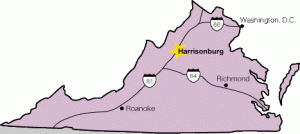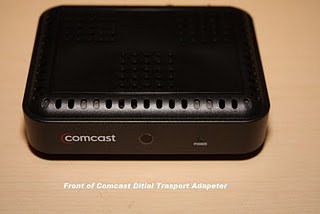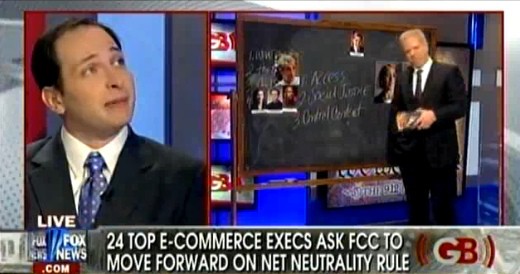 Comcast Cable has been embarked on a gradual effort to convert many of their cable systems to digital platforms, which means more channel space, faster broadband speeds, and major headaches for some customers.
Comcast Cable has been embarked on a gradual effort to convert many of their cable systems to digital platforms, which means more channel space, faster broadband speeds, and major headaches for some customers.
In Harrisonburg, Va., Comcast customers have been surprised and frustrated to find many of their favorite channels missing. The cable company migrated most of the basic cable lineup to digital. Customers who already use Comcast set top boxes never noticed the difference, but those who don’t certainly did.
 The cable company spent weeks notifying customers they may need a “digital transport adapter” (DTA) — a fancy name for a small set top box — to continue to receive Comcast service on televisions that do not already have a box attached. Many cable customers are confused by the transition, assuming if they own a “digital-ready” television, they don’t need extra equipment. But most, in fact, do.
The cable company spent weeks notifying customers they may need a “digital transport adapter” (DTA) — a fancy name for a small set top box — to continue to receive Comcast service on televisions that do not already have a box attached. Many cable customers are confused by the transition, assuming if they own a “digital-ready” television, they don’t need extra equipment. But most, in fact, do.
When customers discovered they needed the new box, minor chaos ensued at area Comcast retail outlets. The Virginia State Police was reportedly pressed into service directing traffic in and out of some crowded cable store parking lots, and one customer even found a trooper guarding the cable company’s front door.
Some customers are telling local media they waited hours in long lines to obtain the equipment. Several others are complaining even with the boxes, their favorite channels are still missing.
Most of the trouble seems to surround the authorization process required to enable the new equipment.
A reporter for an area television station discovered that on the air as she attempted, and failed, to get her box authorized for service, even after an hour waiting. Customers report very long hold times when calling Comcast as well.
The cable company acknowledged some of the challenges.
“For the past few months, we’ve been communicating with our customers in the Shenandoah Valley about our ‘World of More’ digital enhancement,” the company said in a statement. “We’re moving analog channels to digital, and we do see an increase in the number of customers trying to get digital equipment. We’ve been offering extended hours and stepping up staffing to respond to increased demand.”
Comcast says the transition will increase the number of HD channels on offer in Virginia. It also opens the door to faster broadband speeds through DOCSIS 3 upgrades. In all, the company plans to add 50 new HD channels in the Staunton, Waynesboro and Augusta County areas after the upgrade is complete.
Area customers just wish the experience worked more seamlessly. Comcast customers in many communities have already dealt with digital upgrades. Time Warner customers, starting in Maine, are just beginning the experience.
[flv width=”640″ height=”380″]http://www.phillipdampier.com/video/WHSV Harrisonburg Comcast Problems in Va 11-16-11.flv[/flv]
This WHSV reporter in Harrisonburg, Va. tried to demonstrate how to install and activate Comcast’s new set top box equipment… and failed because the cable company authorization process didn’t work. (2 minutes)


 Subscribe
Subscribe





